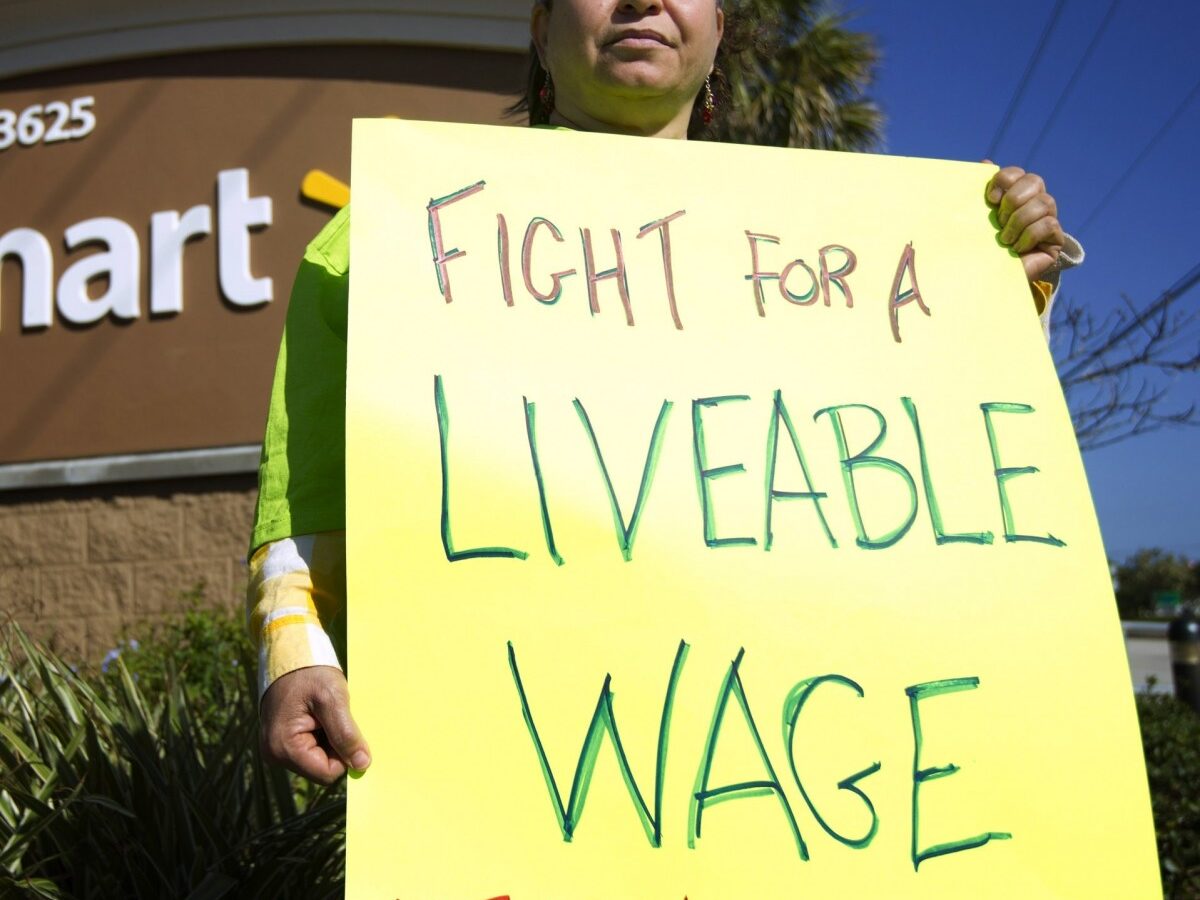
UPDATE: At least 30 non-union Wal-Mart warehouse workers in California launched a surprise two-day strike this morning to protest alleged retaliation for exposing safety risks. The Nation reports that the strike began after workers filed numerous safety complaints with the California Division of Occupational Safety and Health, claiming that emergency exits are sometimes blocked by boxes and merchandise; forklift brakes, seatbelts and horns often don’t work; and workers have been loading shipping containers in the dark.
Warehouse workers appear to be determined to improve safety, even in the face of apparent retaliations against at least 60 Wal-Mart workers who participated in sanctioned strikes earlier this year.
“I got fired because I went on an unfair labor practice strike. They are blatantly breaking federal laws that protect us,” Barbara Collins, a former Wal-Mart worker in California, told Mint Press News.
Collins was one of 100 people who went on strike to protest low wages, lack of full-time work and intimidation in the workplace, among other issues, during the Wal-Mart general shareholders meeting in June. She has taken her message to Sacramento, the state capital, where she hopes for legal action that will restore jobs for those who lost them.
“We all really do love our jobs, we love our customers but the disrespect, the intimidation and the fear management puts into the workers for speaking out is not right, especially when we have the right to do it. I think our government should step in and tell them that they are blatantly breaking the law,” Collins said. “I was fired for the days I was out on strike. A lot of people are being disciplined for their attendance. My view is that if we let Wal-Mart get away with breaking federal laws here in the U.S., what does that say for the rest of the workers in America?”
Original story, “Wal-Mart Workers Cry Foul At Firings In Wake Of Protest For Living Wage,” from July 16:
After facing the largest sustained protest in company history in May, Wal-Mart has retaliated by firing nine employees in California who participated in the demonstration outside the annual shareholders meeting in Bentonville, Ark.
The Sacramento Press reports that as of July 8, nine Wal-Mart employees have been dismissed for violating the company’s attendance policy. Executives deny that the firings were in response to a “specific protest.”
Kory Lundberg, a spokesperson for Wal-Mart, says that violations for violating attendance policy are not uncommon and often result in a dismissal that has nothing to do with the employee’s political affiliations or viewpoints.
“Discharges for attendance at Wal-Mart are not rare or limited to a specific group – in the last month more than 1,000 associates nationwide have been discharged for violating our attendance policy,” Lundberg said to the Sacramento Press.
Barbara Collins and her colleagues beg to differ. They say they announced their absences to management before they began their strike on May 30, joining a nationwide workers’ caravan to Bentonville, Collins said.
“We want freedom of speech about our working conditions at Wal-Mart,” said Collins.
Collins joined more than 100 workers in the caravan to Arkansas to protest outside the annual shareholders meeting, demanding fair pay and respect at the workplace.
Working with Our Walmart, a workers’ rights advocacy organization formed in 2011, a growing number of Wal-Mart workers have put forth demands for a minimum wage of $13 per hour and respect at the workplace. They have also called on management to make more full-time jobs available and to create “dependable, predictable work schedules.”
Wal-Mart claims to pay workers an average hourly wage of $12.78 but canceled plans to build three stores in Washington, D.C., after the city council passed a living wage bill that requires large retailers to pay at least $12.50 per hour.
Our Walmart claims that many workers earn less than $10 per hour and are given only part-time employment.
The protesters currently represent just a fraction of the 1.3 million Wal-Mart workers across the U.S., but they claim that they represent a broad coalition of employees who share similar views about working conditions at the company.
“All we really want is for our rights to be respected and to live a life worth living. We’re not just numbers on your assets, we are living people. We do have [the right] for a better life,” said Golben Lebel, a Wal-Mart associate from Colorado, in an interview with Mint Press News.
Wal-Mart executives have said that they listen to employee feedback and use it to improve working conditions as well as company performance.
Although workers at Wal-Mart are not currently unionized, the United Food and Commercial Workers union filed a charge of unfair labor practices against Wal-Mart, according to the Sacramento Press. The latest firings are part of a string of roughly 60 firings in recent months.
Organizers claimed that the workers’ caravan marked the first prolonged strike in the company’s history.


